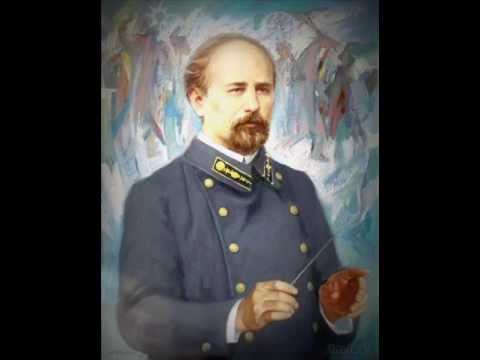Mykola Leontovych, a Ukrainian composer and choral conductor, is best known for his deeply rooted folk-based choral compositions. His works capture the essence of Ukrainian culture and are a symbol of national pride. Born in 1877, Leontovych’s life was tragically cut short in 1921, but his legacy endures through his music, which continues to be performed worldwide. Below are five of his most outstanding compositions, each highlighting his unique ability to blend traditional Ukrainian folk elements with choral artistry.
1. Shchedryk (Carol of the Bells)
Without a doubt, Shchedryk, better known internationally as the Carol of the Bells, is Leontovych’s most famous composition. Based on a traditional Ukrainian folk chant, Shchedryk tells the story of a swallow flying into a household to proclaim the prosperous arrival of spring. Leontovych arranged this piece in 1914, and its mesmerizing melody has become synonymous with Christmas around the world, thanks to the English lyrics added in 1936. The repeating four-note motif and dynamic choral textures make this piece an enduring classic that continues to enchant listeners every holiday season.
2. Dudaryk
Another masterpiece by Leontovych, Dudaryk is a choral arrangement based on a Ukrainian folk song. The title translates to “The Piper,” referring to a young man who plays the dudar, a traditional Ukrainian bagpipe. The song narrates the journey of a wandering musician. Leontovych’s arrangement is notable for its rich harmonic structure and vibrant energy, seamlessly blending joy and melancholy. The piece is a brilliant showcase of his ability to preserve Ukrainian folk traditions while enhancing them with sophisticated choral writing.
3. A Prayer for Ukraine (Молитва за Україну)
A Prayer for Ukraine is one of Leontovych’s most emotional and solemn compositions. Written as a plea for peace and protection of the Ukrainian nation, the piece is filled with spiritual intensity and deep reverence. The music’s haunting harmonies and gentle progressions make it a powerful choral work often performed during national ceremonies and in times of national reflection. It holds significant patriotic value and remains a beloved part of Ukrainian choral literature.
4. Kozak Yednoryh (The One-Horned Cossack)
This lesser-known but equally captivating work, Kozak Yednoryh, is another example of Leontovych’s talent for adapting folk songs. The piece is based on a Ukrainian epic ballad about a brave but lonely Cossack warrior. Leontovych’s arrangement skillfully conveys the drama and heroism of the tale through contrasting dynamics and rich vocal textures. The piece stands out for its rhythmic vitality and expressive melodic lines, reflecting the spirit of the Cossack tradition while adding a modern choral flair.
5. Plyve Kacha (The Duckling Swims)
Plyve Kacha is a poignant folk song that Leontovych adapted into a choral work, and it has since become a powerful symbol of national mourning in Ukraine. The song’s melancholic melody and lyrics speak of a mother’s farewell to her son, who is leaving for war. Leontovych’s arrangement enhances the emotional weight of the song, using rich harmonies and subtle dynamics to evoke a deep sense of loss and sorrow. Today, it is often performed at funerals and commemorations, especially for fallen soldiers, underscoring its timeless relevance.
Conclusion
Mykola Leontovych’s compositions are not only exceptional pieces of music but also vital cultural artifacts that preserve the spirit of Ukraine. His ability to take traditional folk songs and transform them into complex, beautiful choral arrangements has made him one of the most celebrated Ukrainian composers. From the global sensation of Shchedryk to the national significance of A Prayer for Ukraine, his works continue to inspire and move audiences across the world.


Comments are closed